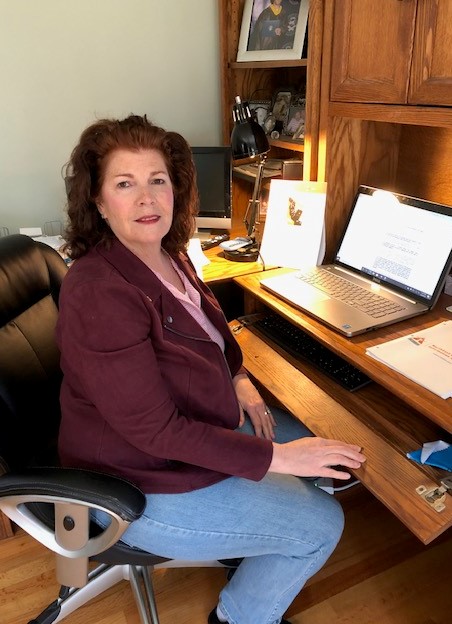Lori C. Adamo, founder of Code Red Business Continuity Services LLC, said her company, located in Cranston, helps businesses plan for major disruptions.
The company creates continuity plans aimed at keeping a company’s critical business functions operating. Adamo, who served as Economic Development Director of the City of Cranston in 2003, said a visit to Washington, D.C. to meet with some federal department heads gave her the idea to open her business.
“One man in the Department of Homeland Security Office talked about business continuity and the importance” of having a plan to stay in business, said Adamo. “This was after September 11th. Knowing that I was leaving the city, with a new mayor coming onboard, I decided I’d look into this more.” Shortly thereafter she opened her own business, becoming certified as a Business Continuity Professional and built a team of first responders to help companies deal with disruptions.
“I am now able to see the plans I have created at work,” Adamo said. “This has been a true test of the plan development and training that has been done and it has been rewarding to see. Business Continuity Plans help businesses to be resilient in the face of a disaster. A Business Continuity Plan is a commonsense document that addresses the specific circumstances and needs of a business. It provides practical strategies to follow focusing on business functions and analyzing how IT supports the business in a crisis.”
Adamo paints a picture of a harsh reality in the wake of a disruption, such as the COVID-19 pandemic. “I will refer to something I learned years ago, as I grew to understand how important it is for businesses to have a Business Continuity Plan: FEMA cites 4% of businesses do not reopen their doors after a disaster; another 2% fail after one year.”
PBN is asking local business owners and CEOs five questions in a survey designed to understand how the new coronavirus has affected them and their businesses and what they have learned from the unprecedented challenges. Here are Adamo’s responses:
How are you coping amid the COVID-19 crisis?
The coronavirus has impacted me professionally, as I have not been able to bring on new clients. So professionally, I am in the same boat as other consultants or contractors. I am always here to answer questions and support my clients via conference calls or go-to-meetings. My husband is an essential worker, so he has been working hard every day.
I am coping while helping clients with their Business Continuity Planning. My coping comes from my ability to support clients if they need it. I have also updated my Pandemic Plan so I can help existing clients and new business as the economy re-opens.
Have you found silver linings in these difficult times?
The silver lining for me is having my plans work for my clients. No better feeling knowing that the business continuity plan that was created to help them be resilient and stay in business has done just that.
How are you maintaining your company culture?
Code Red’s business model is to work directly with contractors, therefore, there are no in-house employees that we need to protect. Code Red is maintaining its culture by ensuring all of our clients’ needs are met as they work through this difficult time. If I don’t have an answer right away, I will find the answer and guide each decision through to resolution. When the Pandemic first hit, the first thing I did was to send a pandemic checklist and guide to assist clients with planning and procedural information. Trying to always go above expectations for the health and well-being of our clients and their employees.
I am a consultant, so I will help any business who has a question without a fee. I have been able to support clients who may have questions or need guidance remotely.
Did your business continuity plan work or were there surprises?
Code Red’s Business Continuity Plan continues to work well as I can always offer services from my home office. Critical functions such as information flow, supporting clients and providing guidance where needed has never stopped. What I can’t do is visit clients, as pandemics affect the ability to work side by side. With Zoom and Go-To-Meetings, the option is there to connect. Very soon, Code Red will be working with a long-term client to assist with their reopening plans. This important work continues as Code Red has been in business for almost 17 years, through the floods of 2010, and other major events. Our motto: “Plan for the unexpected.”
Do you have advice for other local companies?
Understand your critical services, functions and people and bring these back first. Apply all social distancing and hygiene practices, while you phase your business back into a 100 percent stance. If businesses do not have a plan to stay in business moving forward, then I would suggest they think about investing in their survival now. Interruptions can come in many forms: In my industry, planning for a pandemic is always considered but there’s many other disruptions: hurricanes, long-term power outages, workplace violence, fires, etc. We live in a very volatile world and planning for the worst-case scenario is recommended.
Cassius Shuman is a PBN staff writer and researcher. He can be reached at shuman@pbn.com.













